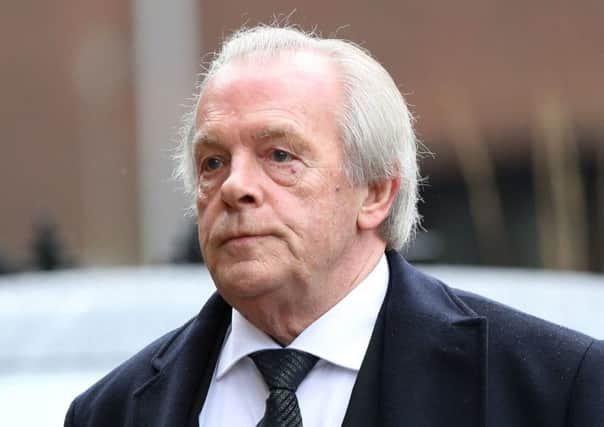Gordon Taylor admits mistakes as he bows out of PFA


At the trade union’s annual general meeting yesterday, the 74-year-old announced his plan to stand down after an independent review of the PFA is completed.
This means the former Bolton, Birmingham, Blackburn and Bury winger could quit as early as November, when the next AGM is scheduled, although he could still be in charge next year, depending on how long the QC-led review and search for his successor takes.
Advertisement
Hide AdAdvertisement
Hide AdThe announcement, however, does mark the beginning of the end of a relationship that started when Taylor signed for Bolton at 16, saw him progress from players’ rep to committee member to chairman to chief executive –a career arc that lasts almost 50 years. It also signals the end of a hugely-divisive chapter in the union’s history and a bruising period for Taylor personally.
What started with an attempt by PFA chairman Ben Purkiss to ease Taylor towards retirement – and give the union a reboot –erupted into civil war and a spate of negative headlines.
Some of those stories were new – most notably the suggestion that the PFA broke trade union law by not making Taylor stand for re-election and issues around the governance of its charity – but others were old sticks with which to beat him.
Taylor acknowledged there had been “disputes” with Purkiss and others but said there had been a “coming together” to ensure the union survives and thrives.
Advertisement
Hide AdAdvertisement
Hide AdAsked if he had regrets, Taylor said: “Of course, I’m human. I’ve woken up feeling negative but making that negative a positive is the challenge. There’s not a football team in the world that can win every game. You just try to make sure you get two out of three right.”
The most common complaint has always been that he is overpaid. His annual salary is now £1.3m but that has been topped up with a big bonus every third year when he has agreed a new funding arrangement with the Premier League – a deal known as a no-strike agreement in return for the league paying for the players’